Giving Up God for Lent has proved to be a very good and challenging theme for us this Lenten season. I have heard from many of you that this theme made you feel uncomfortable. I have heard that it is almost too provocative. We‘ve even heard from the community statements like, ―What sort of a church gives us God for Lent?‖ and ―Why don‘t you just put up a Bible verse on the corner of your property?‖
These comments and reactions indicate that we are being provoked to examine our idols (and passing drivers as well). Idols are those things we place in front of God in importance and the ways we create God in our image instead of letting God be God. Idols that only want the Bible to say certain comforting things instead of hearing the whole witness of scripture. Idols that are our ways of ―editing‖ God into something we can control and who doesn‘t demand too much of us. Idols that we create out of our family, friends, nation, flag, money, jobs, even our brokenness (hanging onto our pain instead seeking healing). But, this theme, and more importantly your desire to grow as faithful Christians, won‘t let us relax and get comfortable any more than Lent does.
I am thankful for the ways you are engaging the theme this year. On Ash Wednesday, people wrote on black strips of cloth those things that get in the way of our relationship with God and tied them to the central symbol of our brokenness, the cross. If you have not written something down a strip of cloth and tied to the cross yet, I hope you will do so as part of our preparation for Easter. Another sign of your engagement is the lively discussion we‘ve had in our Wednesday night and Thursday morning groups of Merold Westphal‘s book Suspicion and Faith.
During his visit, Dr. Westphal told us that a friend is someone who will tell you what you don‘t want to hear or see about yourself, and sometimes our best friends are our enemies. Lis-tening to Freud, Marx and Nietzsche as true friends has been tough but insightful. The Just Eat-ing study of the Presbyterian Hunger Program and our ongoing conversation with our friends in Peru, the Midnight Run our youth will be going on, new people serving food at JanPeek, and many more are signs of letting God be God in our lives. Even the rehab of our sanctuary that has revealed the cracks in our walls so that they may be repaired is a powerful sign of what this Lenten journey is about. We are letting go of idols that keep us from knowing God. We are facing the brokenness in our sanctuary and in our lives that we may know new life and follow God and be the people God wants us to be.
Our journey is not quite over, but the goal is in sight. Good News is promised to us at the end of this journey, and so we travel on through the second half of Lent. This year, we are invited to experience Holy Week in some new ways.
On Maundy Thursday, April 21st, we will be hosting a Christian seder. A Jewish seder is a celebration of their exodus from slavery as described in the book of Exodus. A Christian seder is called the Last Supper, when Jesus announces that a new exodus is coming through his death and resurrection. On Good Friday, April 22nd, we will walk through the last hours of Jesus‘ life and death, hearing Jesus‘ cry, ―My God, my God, why have you forsaken me?‖ Many of you are probably used to this service of shadows and darkness on Thursday. We are simply moving it to its actual day.
Giving Up God for Lent and the events of Holy Week all prepare us for good news. Easter. The Empty Tomb. The day we discover along with the disciples that God does not leave us in tombs. Death is not the final answer. God wins. Life wins. And we shout, ―Alleluia! Christ is risen. Christ is risen indeed.‖
I am looking forward to the second half our journey through Lent and hope you are as well. Lent takes us through examination of ourselves and our church and our ministry to our community and world so that we let go of our idols, embody new life, proclaim good news, and share it with this world God loves.
Anxiously awaiting God‘s promise,
